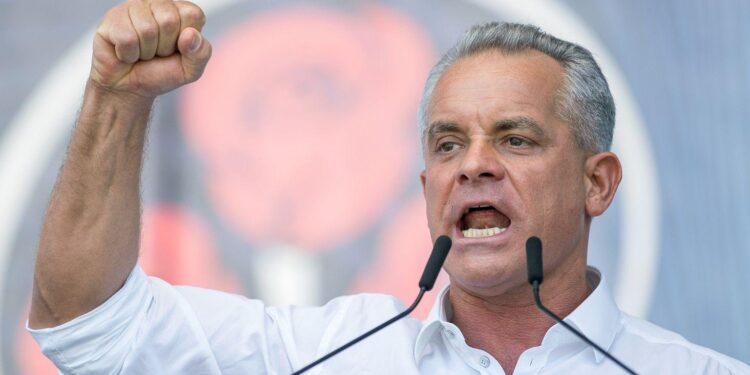Vlad Plahotniuc, the controversial Moldovan businessman and former political figure currently detained abroad, has expressed his willingness to be extradited to Moldova, his lawyer told Reuters on Thursday. The announcement marks a significant development in the ongoing legal and political saga surrounding Plahotniuc, who faces multiple accusations in his home country. Authorities in Moldova are closely monitoring the situation as the extradition process unfolds.
Detained Magnate Plahotniuc Expresses Readiness for Extradition to Moldova
Oligarch Vlad Plahotniuc, currently held in custody abroad, has signaled his readiness to face justice in his home country amid escalating legal pressures. According to his lawyer, the controversial figure is prepared to undergo the extradition process, potentially paving the way for a high-profile trial in Moldova. This development marks a significant turn in a case that has attracted widespread attention due to Plahotniuc’s political clout and alleged involvement in extensive corruption schemes.
Key details surrounding the extradition proposal include:
- Legal status: The detained magnate is officially contesting no requests for extradition at present.
- Government stance: Moldovan authorities have formally submitted documents to pursue his return.
- Implications: A possible trial could intensify scrutiny on Moldova’s efforts to combat oligarchic influence.
| Aspect | Current Status |
|---|---|
| Detention Location | Undisclosed country abroad |
| Extradition Request Filed | Yes, by Moldovan Government |
| Legal Representation | Confirmed, active communication ongoing |
Legal Experts Outline Implications of Plahotniuc’s Potential Return on Moldovan Justice System
The prospect of Vlad Plahotniuc’s return to Moldova has ignited a heated debate among legal experts concerned about the profound consequences for the country’s justice system. Many warn that reinstating a figure so closely linked to allegations of corruption and state capture could undermine public confidence in judicial independence and the rule of law. They emphasize the risk of politically motivated prosecutions and a potential rollback of recent reforms aimed at transparency and accountability.
Legal analysts also underscore the complexity of extradition proceedings, noting several critical factors that will shape the outcome and its aftermath:
- Judicial Integrity: Ensuring that any legal processes involving Plahotniuc adhere strictly to international fair trial standards.
- Political Influence: Safeguarding the justice system from undue pressure or interference from vested interests.
- Institutional Reforms: Maintaining momentum in ongoing efforts to strengthen anti-corruption measures and independent oversight.
- Public Trust: Rebuilding confidence among citizens who view the judicial system as vulnerable to elite manipulation.
| Aspect | Potential Impact |
|---|---|
| Extradition Process | Sets precedent for international cooperation |
| Judicial Independence | May face unprecedented challenges |
| Anti-corruption Efforts | Risk of stagnation or reversal |
| Public Perception | Could further polarize society |
Recommendations for Moldovan Authorities on Handling High-Profile Extradition Cases
Authorities in Moldova are urged to approach high-profile extradition cases with transparency and adherence to international legal standards. Establishing clear protocols for handling complex cases involving influential figures like Plahotniuc is essential to maintain public trust and uphold the rule of law. The government should prioritize coordination between judicial bodies, law enforcement, and diplomatic channels to ensure the process is both efficient and impartial, avoiding any perception of political interference or bias.
Furthermore, investing in specialized training for prosecutors and investigators on extradition law and international cooperation will enhance Moldova’s ability to manage these sensitive matters effectively. Measures to protect witness confidentiality and prevent undue pressure on involved parties should be integrated into the procedural framework. The following table highlights key focus areas for Moldovan authorities to consider:
| Focus Area | Recommended Action |
|---|---|
| Legal Framework | Ensure strict compliance with bilateral treaties and international law |
| Transparency | Regular public updates to mitigate misinformation |
| Capacity Building | Train judiciary and enforcement on extradition complexities |
| Impartiality | Implement safeguards against political influence |
Closing Remarks
As the situation develops, the willingness of Vlad Plahotniuc to face legal proceedings in Moldova marks a significant turn in a high-profile case that has drawn international attention. Observers will be closely monitoring the extradition process and its implications for Moldova’s ongoing efforts to address corruption and uphold the rule of law. Further updates are expected as authorities and legal representatives navigate the next steps in this unfolding story.
















